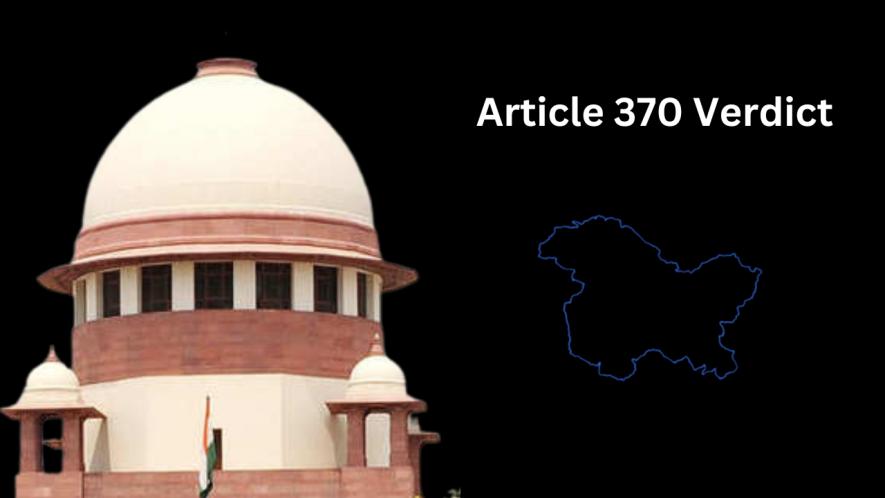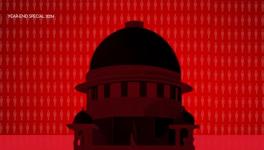SC Upholds Abrogation of Article 370 in J&K, Calls for Polls by Sept 2024

New Delhi: After five years and several petitions waiting to be heard, the Supreme Court of India on Monday upheld the government's decision to abrogate Article 370, which bestowed special status on the erstwhile state of Jammu and Kashmir. The top court also said that steps should be taken to conduct elections in the Assembly by September 30 next year.
Numerous petitions challenging the Centre’s decision to abrogate the provisions of Article 370 and the Jammu and Kashmir Reorganisation Act, 2019, which split J&K into two Union territories - Jammu and Kashmir, and Ladakh were referred to a Constitution bench in 2019.
The petitioners had raised concerns regarding the constitutional validity of the abrogation of Article 370, if the Article 370 was permanent, the validity of the Jammu and Kashmir Reorganisation Act, which split the erstwhile state into two UTs. They also challenged the imposition of Governor's rule in J&K on June 20, 2018, and the imposition of President's rule on December 19, 2018 and its extension on July 3, 2019.
Also, some petitions challenged the bifurcating of the State of J&K into two UTs, saying it was a violation of Articles 1 and 3 of the Indian Constitution which does not allow retrogression of statehood.
On Monday, writing the judgement for himself and Justices Gavai and Surya Kant, Chief Justice of India D Y Chandrachud said Article 370 of the Constitution was a temporary provision and the President has the power to revoke it.
The apex court also upheld the validity of the decision to carve out the Union territory of Ladakh from Jammu and Kashmir in August 2019.
The erstwhile state of Jammu and Kashmir does not have internal sovereignty different from other states of the country, he said.
"... all provisions of the Indian Constitution can be applied to J-K," the CJI said.
"We hold the exercise of presidential power to issue a constitutional order abrogating Article 370 of the Constitution as valid," the CJI said.
Jammu and Kashmir became an integral part of India and this is evident from Articles 1 and 370, he said while pronouncing the judgment.
“The Constituent Assembly of J&K was never intended to be a permanent body,” the CJI stated.
Article 370, which was abrogated on August 5, 2019, was an interim arrangement due to war conditions in the erstwhile state, Justice Chandrachud said.
The princely state had become an integral part of India and this is evident from Articles 1 and 370, the CJI said.
The bench comprising CJI D Y Chandrachud and Justices Gavai, Surya Kant, Sanjay Kishan Kaul, Sanjiv Khanna, assembled at 10.56 am to pronounce the three separate and concurring judgments Justices Kaul and Khanna wrote their judgments separately.
The apex court reserved its verdict in the matter on September 5 after a 16-day hearing on a batch of petitions challenging the abrogation of the provisions of Article 370.
Former Chief minister and Jammu & Kashmir National Conference leader Omar Abdullah wrote on X, formerly knows as Twitter, he is 'Disappointed but not disheartened.' by the verdict.
Disappointed but not disheartened. The struggle will continue. It took the BJP decades to reach here. We are also prepared for the long haul. #WeShallOvercome #Article370
— Omar Abdullah (@OmarAbdullah) December 11, 2023
Get the latest reports & analysis with people's perspective on Protests, movements & deep analytical videos, discussions of the current affairs in your Telegram app. Subscribe to NewsClick's Telegram channel & get Real-Time updates on stories, as they get published on our website.
























